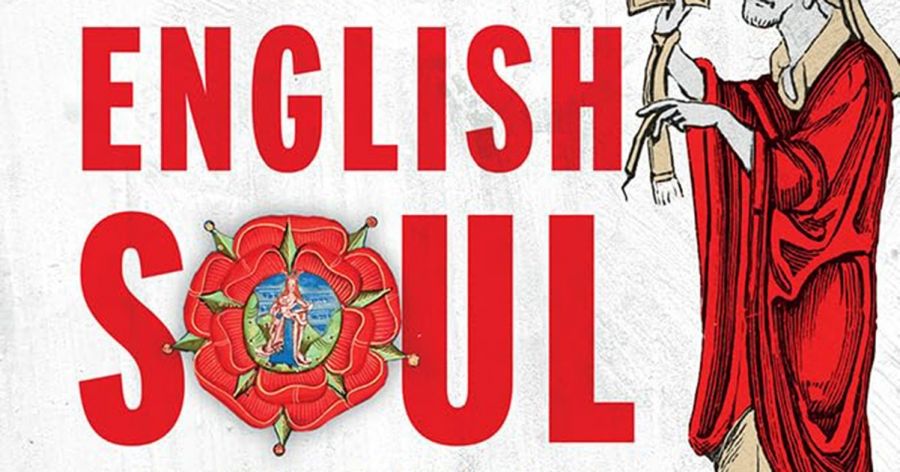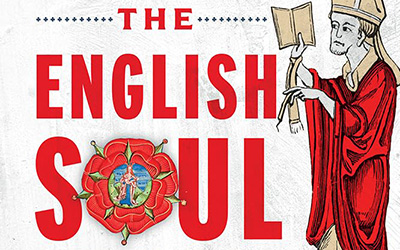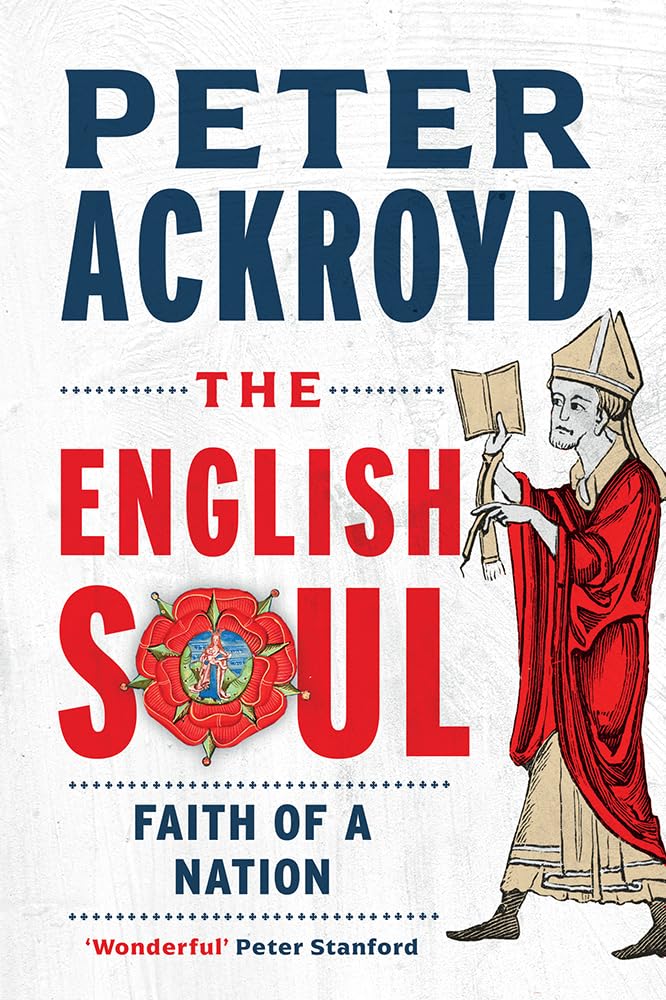
- Free Article: No
- Contents Category: United Kingdom
- Review Article: Yes
- Article Title: Sects and seekers
- Article Subtitle: A history of English Christianity
- Online Only: No
- Custom Highlight Text:
The English Soul is a history of Christianity in England from the Venerable Bede to the present, a period of roughly 1,400 years. Its enthralling journey leads us from the medieval mystics, including Julian of Norwich, through the torments of the English Reformation and the exhilarating spread of revivalist and evangelical movements in the eighteenth and nineteenth centuries, to the charismatic Christian movements of more recent times. If the narrative that emerges is principally that of the Established Church and the creation of its High and Low denominations, it is also one that encounters a shocking array of sects and seekers, doubters and dissenters, ranters and ravers, along the way.
- Featured Image (400px * 250px):

- Alt Tag (Featured Image): Stephen Regan reviews ‘The English Soul: Faith of a nation’ by Peter Ackroyd
- Book 1 Title: The English Soul
- Book 1 Subtitle: Faith of a nation
- Book 1 Biblio: Reaktion Books, $39.99 hb, 384 pp
- Book 1 Cover Small (400 x 600):

- Book 1 Cover (800 x 1200):

- Book 1 Readings Link: https://www.readings.com.au/product/9781789148459/the-english-soul--peter-ackroyd--2024--9781789148459#rac:jokjjzr6ly9m
Peter Ackroyd, a distinguished novelist and biographer, is a companionable guide. He writes with verve and clarity, and with a steady and unstrained command of a massive field of theological enquiry. As the author of an excellent study of William Blake (1996), he is accustomed to writing about unorthodox beliefs and powerful visions, and he does so with a calm demeanour. He never discounts or dismisses the mystical revelations of his subjects, whether it be Julian of Norwich seeing the red blood trickling from the crown of thorns on a crucifix or Blake witnessing a tree filled with angels.
Ackroyd is also undeterred by the troubling terms of his book title, holding on stubbornly to the idealistic notion of ‘the English soul’. Perhaps wisely, he avoids any extended discussion of what the soul might have meant for English authors such as William Wordsworth or D.H. Lawrence, both of whom use the term in striking and memorable ways. Instead, he takes it to mean something like ‘sensibility’ (our attitude or disposition towards the world) or employs it as a substitute for ‘spirituality’. However, ‘English’ as a national characteristic allied to the soul creates some problems. Ackroyd’s theologians share a common birthplace, and it might be pleaded that they are all endearingly English in their eccentricities, but the book goes further than this in proposing that English mysticism eventually settles into a peculiarly English practicality and pragmatism in matters of faith.
Ackroyd is a great advocate of English moderation and compromise, but it becomes increasingly difficult to sustain this via media after countless instances of heretics tortured and burned at the stake for their beliefs. What also undermines the idea of a sturdy and persistent English national sentiment in the history of Christianity is that many of the shaping influences in that history come from elsewhere, not least from Lutheran Germany. In an otherwise enlightening chapter on Blake, Ackroyd ties himself in knots as he proceeds to explain how the very English Blake, whose mother was of the Moravian faith, was influenced first by Swedenborg and then by Paracelsus and Böhme. ‘In respect of any understanding of the English soul,’ he notes, ‘it is worth making the obvious point that neither of these philosophers was of English origin.’ Unperturbed by this trifling distraction, he proposes a new, elasticated definition of Englishness: ‘England has always been a magpie or magnetic nation, adopting beliefs and practices that come from elsewhere.’
Ackroyd is on firmer ground when writing about particular places in England, especially London. Having produced an acclaimed history of the city, London: The biography (2000), he is able to pinpoint streets, churches, and cathedrals where important sermons took place. He has a fondness for St Paul’s Cross, an open-air pulpit near the Cathedral, recalling how, in the sixteenth and seventeenth centuries, ‘St Paul’s itself was essentially an extension of city life, its nave filled with hawkers, strollers, petty thieves and casual visitors’. Several of Ackroyd’s subjects are spiritual wanderers and travelling preachers – George Fox, John Wesley, and John Bunyan among them – but the narrative always returns us to London as the centre of power, as well as a place of imprisonment, punishment, and execution.
The English Soul is well crafted, with twenty-three chapters exploring different facets of religious experience. At the same time, each chapter is focused on a salient figure or a group of representative thinkers, so that, in effect, we have a collection of biographical essays in chronological order. We move from ‘Religion as History: The Venerable Bede’ towards ‘Religion as Argument: G.K. Chesterton and C.S. Lewis’. The structure works well and Ackroyd is an illuminating biographer, seizing the essential achievements of each of his subjects. He celebrates the work of Margery Kempe as ‘one of the first, and greatest, exponents of female perception’, and he acknowledges John Wyclif as ‘the first reformer who helped to change the nature of English faith’.
Ackroyd is at his best when religious theme and biographical insight find fruitful alignment, as they do in a brilliantly conceived chapter on religion as sermon, dedicated to Lancelot Andrewes and John Donne. Here, the contrast between two powerful preaching styles is vivid, and Ackroyd draws on his skills as a literary critic to explain how Andrewes would ‘take up a word and speculate upon it, enlarge upon it, divine and define it’, while Donne ‘draws out the syllables for their cadence’ and ‘creates melody’. The idea of divinity as poetry is well illustrated through lines by Andrewes that eventually find their way into T.S. Eliot’s poem ‘Journey of the Magi’ (1927): ‘A cold comming they had of it, at this time of the yeare.’ Ackroyd returns to the topic of religion and poetry in a chapter on George Herbert, reminding us that the Christian community of Little Gidding, near Huntingdon, was ‘a corner of the English soul’ for the seventeenth-century poet, as it was for the newly converted American Eliot three hundred years later.
If The English Soul is a study of exceptional individuals in the history of Christianity, it is also a critical appreciation of the written word, beginning with Bede’s Ecclesiastical History of the English People and marking vitally important stages in the nation’s faith as exemplified by Thomas Cranmer’s great and lasting achievement, the Book of Common Prayer (1549), and by the King James Bible (1611), which merits a chapter of its own. Ackroyd doesn’t mention the Douay-Rheims Bible, translated from the Latin Vulgate into English at the Catholic English seminary at Douay, even though it predates the King James Bible by two years.
Roman Catholicism gets scant attention in the later chapters of the book, even allowing for the subdued conditions of post-Reformation England. There is a sympathetic chapter on John Henry Newman, though Ackroyd is strangely muted on Newman’s achievements as a writer of spiritual autobiography. There is no mention of Eamon Duffy, the author of one of the most important books on pre-Reformation Christianity, The Stripping of the Altars (1992), or of other influential Catholic thinkers such as Herbert McCabe, Nicholas Lash, and Terry Eagleton. Instead, we have Richard Dawkins, who is there to illustrate varieties of atheistic thinking but proves singularly deficient in any understanding of the soul. The book draws to a fitting close, however, with the Cambridge theologian Don Cupitt, whose masterwork Taking Leave of God (1980) is beautifully eloquent and deeply felt. We take leave of The English Soul without any final summing up of the nation’s faith, but with a picture of its religious past as colourful and intricate as stained glass.


Comments powered by CComment